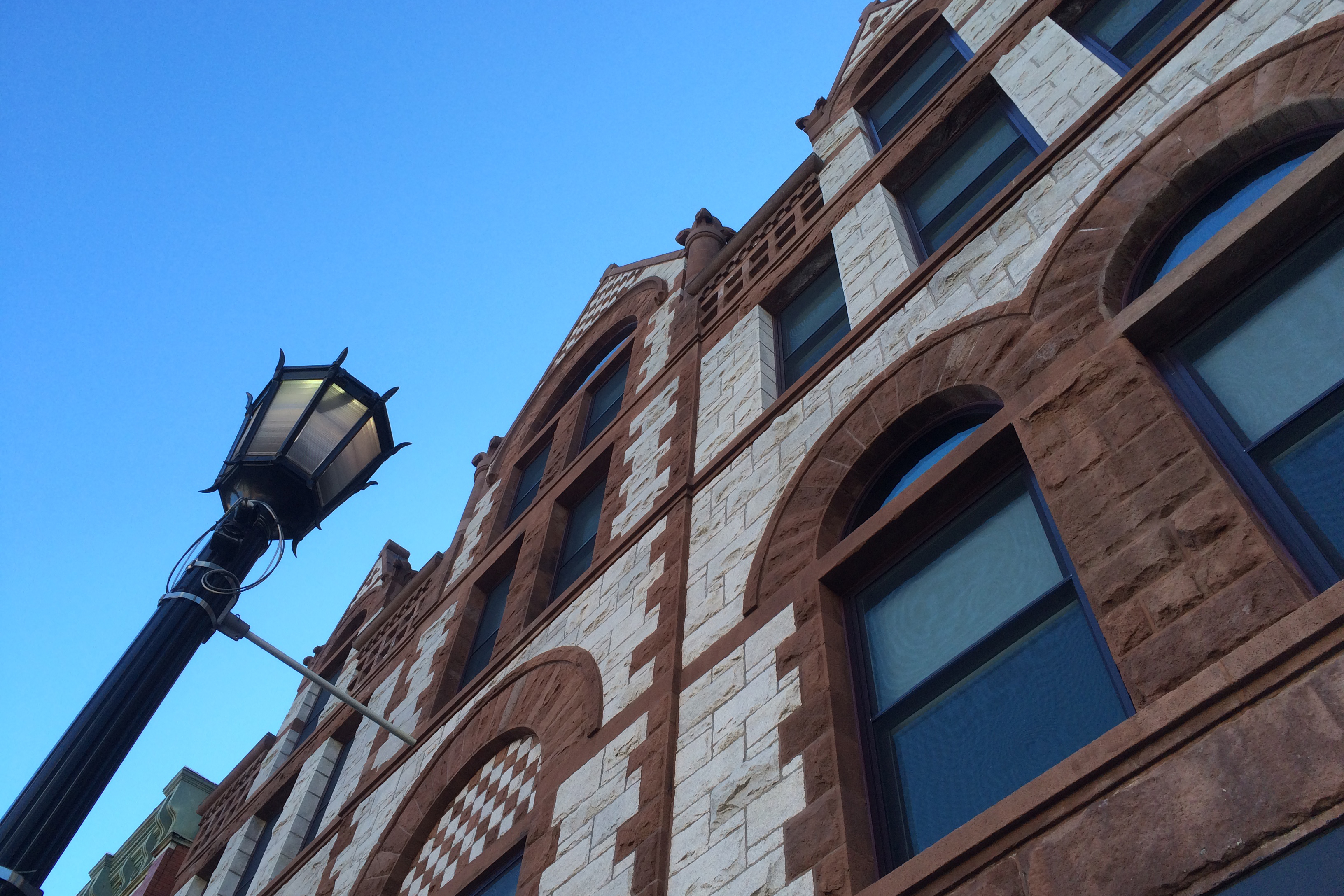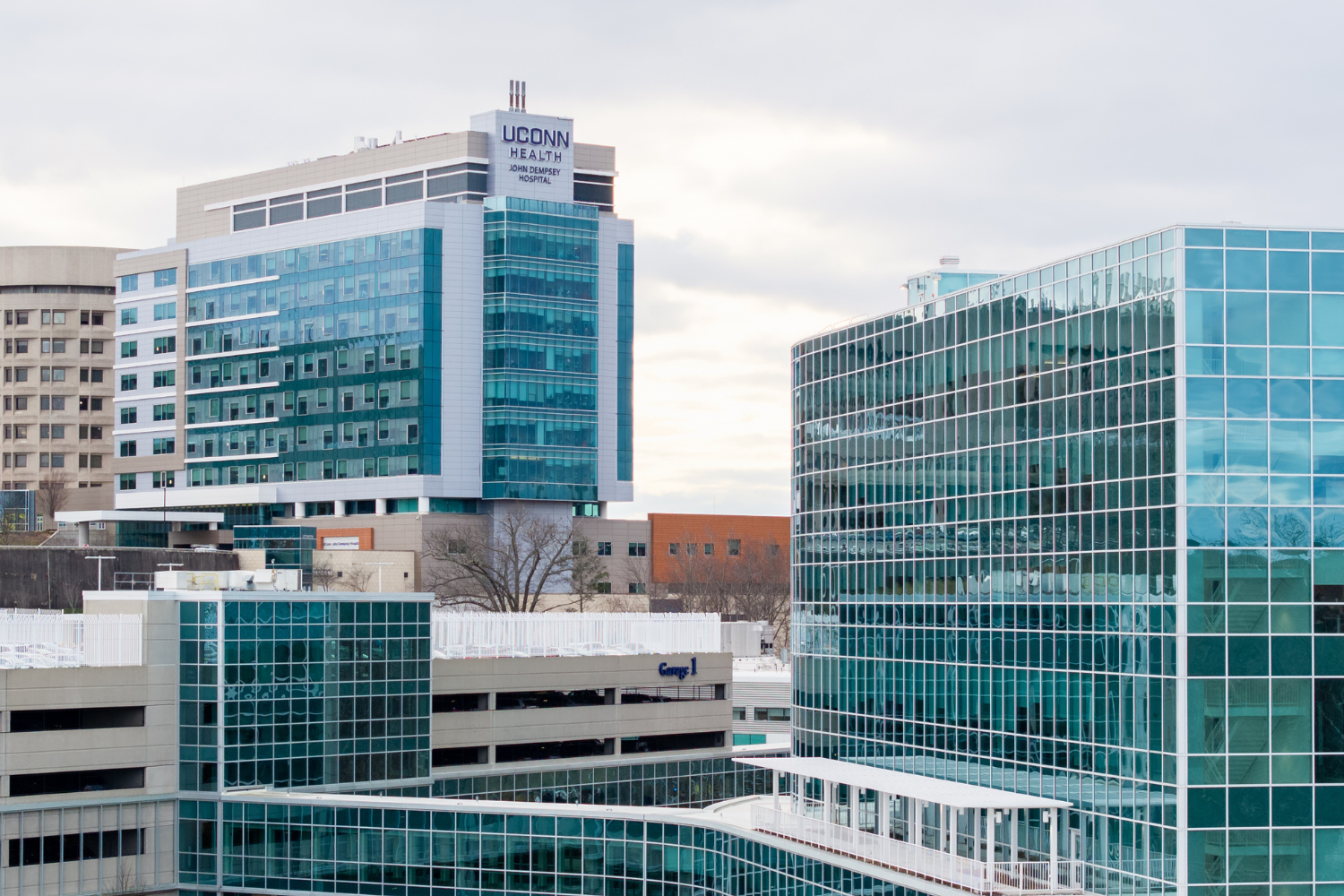Once an empty shell, a now-stately building across the street from UConn Waterbury will soon host classrooms, meeting spaces, and study areas for the campus.
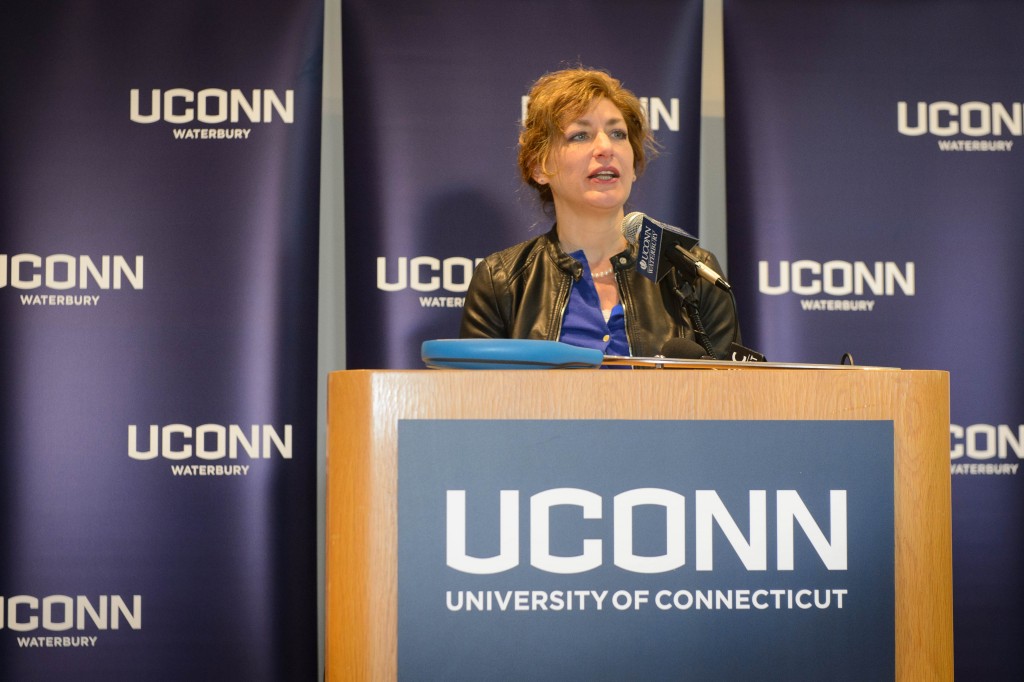
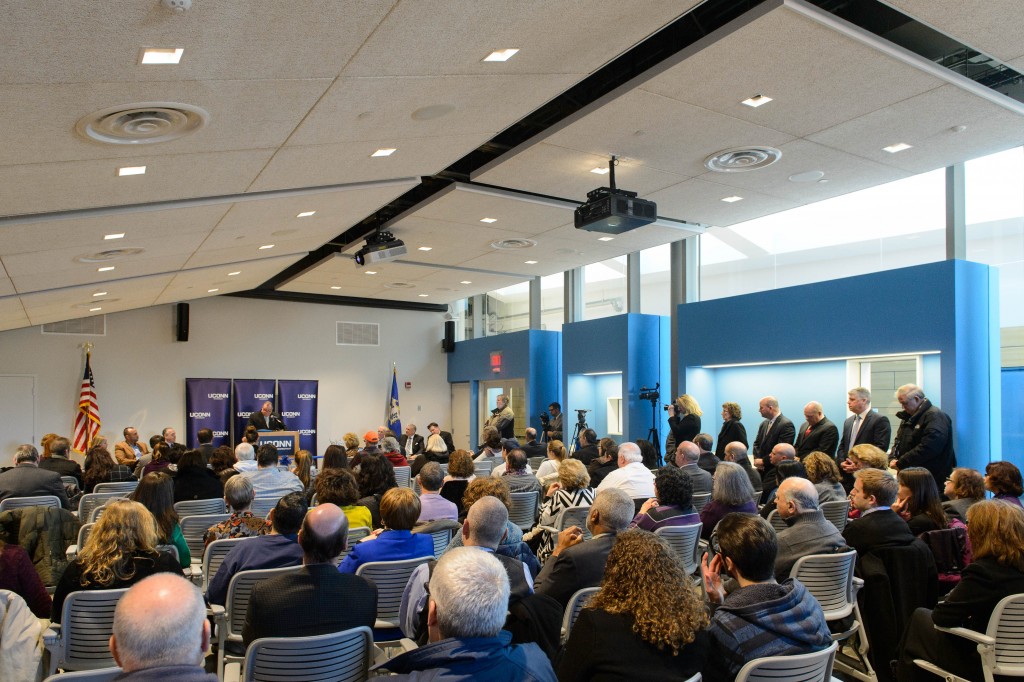
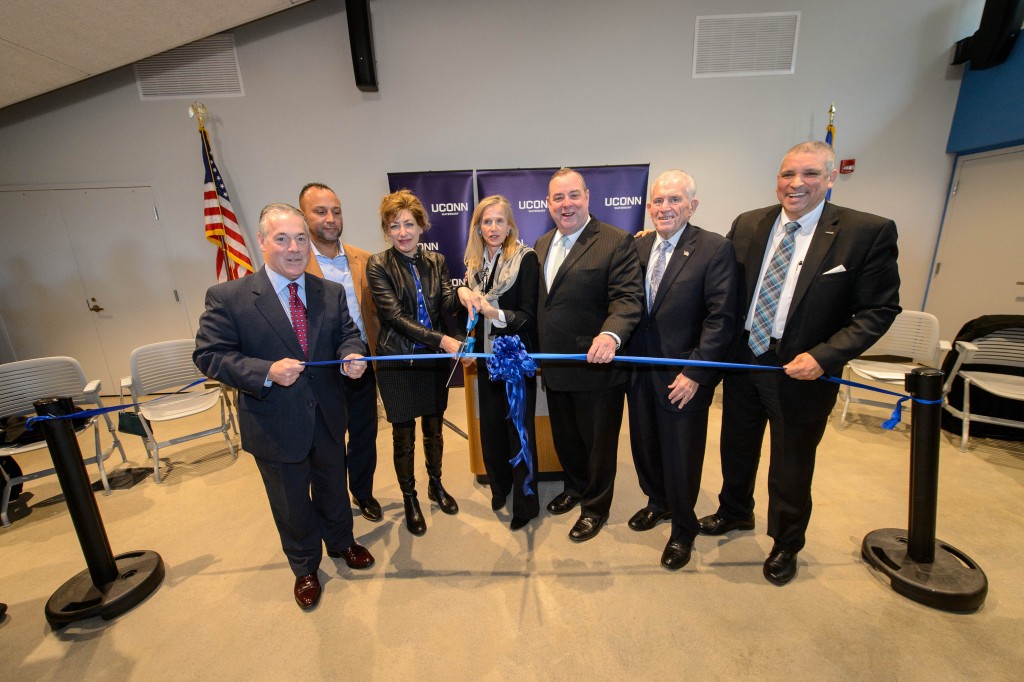
University President Susan Herbst joined Waterbury Mayor Neil O’Leary and others Tuesday, as city leaders and the Waterbury Development Corp. officially re-opened the renovated four-story building and gave tours to city residents, UConn students, and other visitors.
“There’s no better way to kick off the New Year than to celebrate this latest example of the strong bonds between UConn and the city of Waterbury,” Herbst said.
UConn will start using the building with the beginning of the new semester on Jan. 19.
“This project is a great demonstration of UConn’s identity as a state university, in every sense of the term,” Herbst said. “Our students, faculty, and staff will not only have brand-new classroom and meeting spaces here, but they’ll be able to experience even more of what downtown Waterbury has to offer.”
The St. Patrick’s Hall building on East Main Street – built in 1889 and known informally as the Rectory Building – was renovated through a partnership between UConn, the city, and the Waterbury Development Corp. The historic structure had hosted everything from community dances to meetings of a Prohibition-era intemperance league, but had been shuttered for more than a decade before the recent renovation.
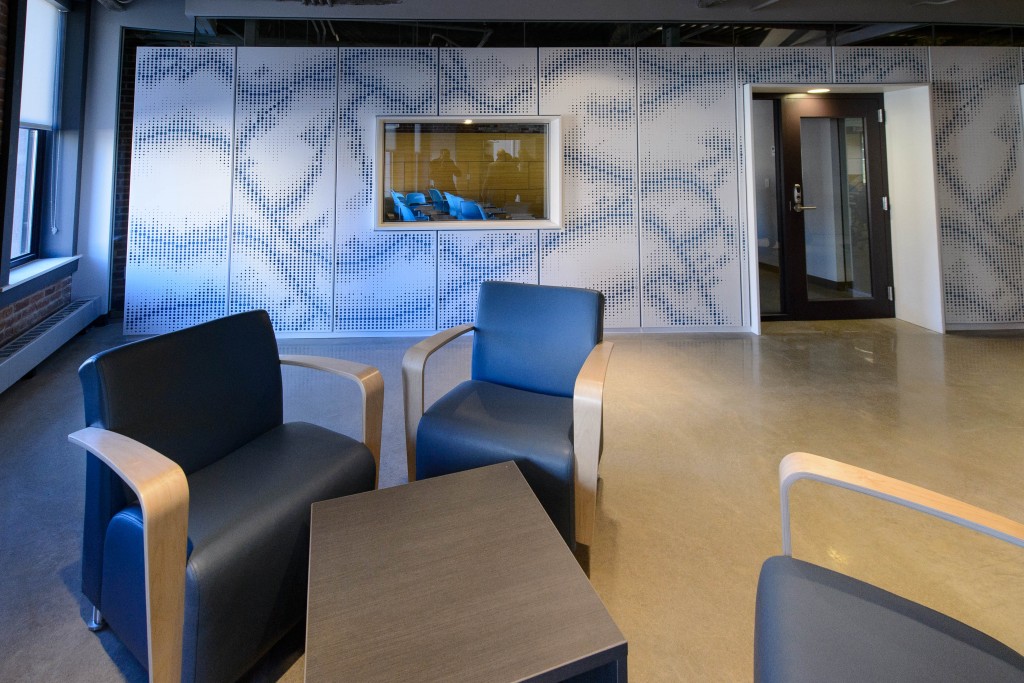
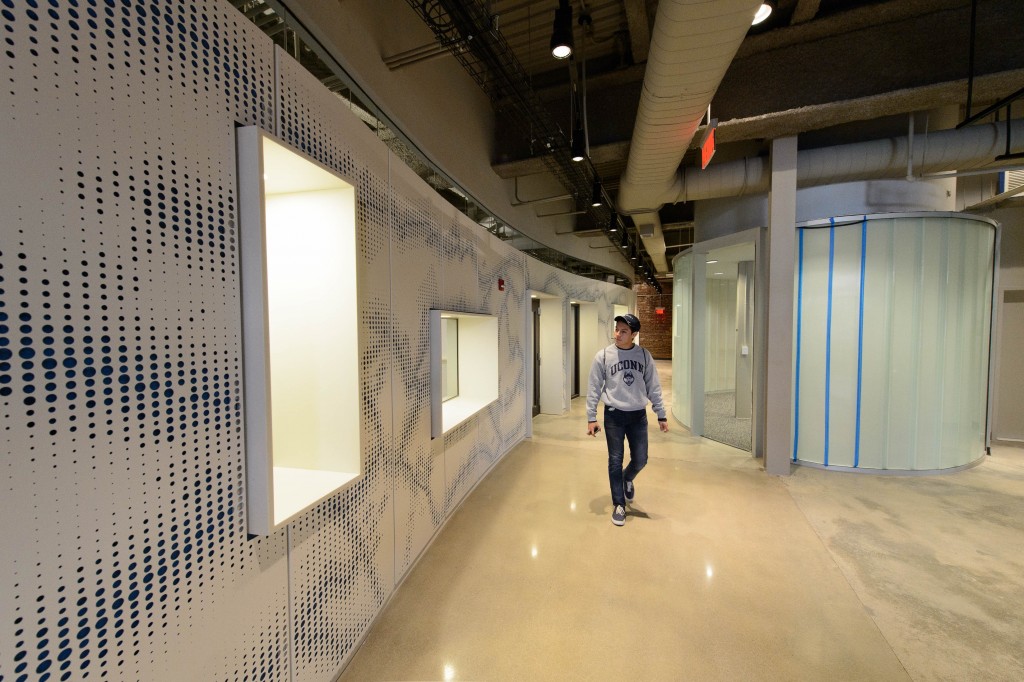
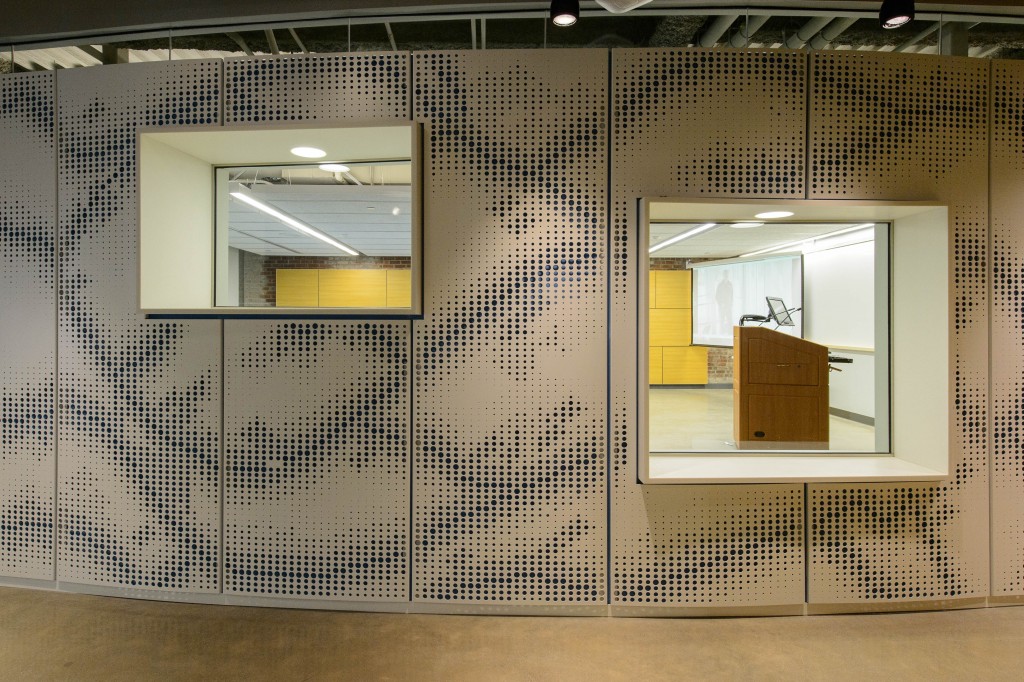
The renovation created six classrooms, various meeting and support spaces, and a large assembly hall on the top floor. In addition, a Starbucks will open later this year or in early 2017 on the ground-level floor, and is expected to draw large numbers of UConn students and employees, other downtown workers, and passersby.
UConn will rent the building from the city, and is outfitting the interior with the furnishings, audio-visual equipment, technology, and other amenities necessary for the University’s operations there.
The building already has several courses scheduled to be taught in the six new classrooms in the upcoming semester, including classes in English, business administration, political science, and philosophy.
“It was so important for us to find the right space for this expansion. It’s not simply a matter of rooms for teaching and studying, but of a place that will encourage the discoveries and exchanges of ideas that are so essential to campus life,” Herbst said.
“And we couldn’t be happier that when we found that location, it was right here, in a building with so much history, and in close proximity to so many businesses and resources for our community.”
